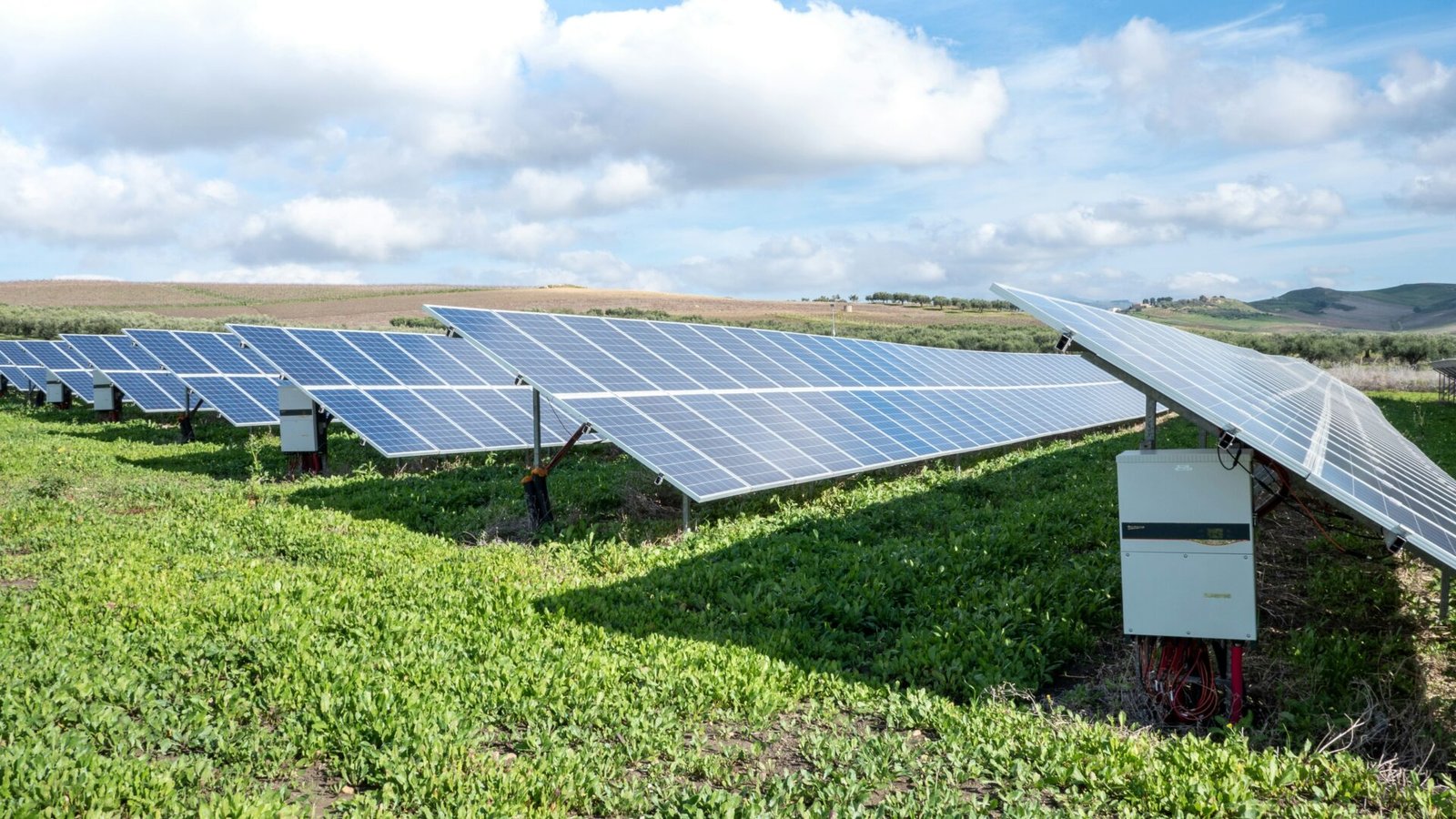The Rise of Renewable Energy
In recent years, the renewable energy sector has witnessed unprecedented growth, firmly establishing itself as a leading source of electricity worldwide. As of 2023, approximately 30% of global electricity is generated from renewable sources, a significant increase from just under 19% a decade earlier. This surge reflects a collective commitment to sustainability and environmental conservation, driven by technological advancements and decreasing costs. For instance, the price of solar and wind energy has plummeted by over 80% in the past ten years, making renewables not only a viable option but also an economically attractive alternative to fossil fuels.
The role of renewable energy in the global energy landscape cannot be overstated. Countries worldwide are increasingly investing in wind, solar, and hydroelectric power as they strive to meet their climate goals and reduce carbon emissions. For instance, nations such as Germany and China have spearheaded initiatives to expand their renewable energy capacities, thereby setting a precedent for others to follow. The International Renewable Energy Agency (IRENA) reports that, to meet the Paris Agreement targets, we must double the share of renewable energy in the global energy mix by 2030. This shift is not merely a trend; it is a necessary transformation of our economic infrastructure.
The International Day of Clean Energy, celebrated annually on October 24, serves as a reminder of the strides made and challenges that still lie ahead in this sector. It is a day for governments, organizations, and individuals to acknowledge the progress achieved in renewable technologies, while also emphasizing the urgent need for continued investments and policy support. As we celebrate these milestones, it is crucial to recognize the disparities that remain, particularly in the access and affordability of clean energy in developing regions. Addressing these issues will be vital in realizing a sustainable future for all.
The Transition from Fossil Fuels
The global transition from fossil fuels to renewable energy sources is becoming increasingly urgent. As climate change accelerates, the detrimental effects of fossil fuel dependency are becoming apparent, manifesting in severe weather patterns, rising sea levels, and threats to biodiversity. The transition hinges on a collective acknowledgment of the necessity to leave behind fossil fuels, known for their high emissions and environmental degradation. Governments around the world play a critical role in facilitating this shift, ensuring it is executed with both urgency and justice.
This shift towards clean energy sources is not merely a technological shift but a social imperative. The migration to renewable energy has profound implications for social equity and economic stability. Policymakers need to develop frameworks that prioritize the integration of renewable technologies, such as solar and wind energy, while ensuring that marginalized communities are included in this transition. This means not only expanding access to clean energy but also providing support for communities that have historically relied on fossil fuels for employment and economic security.
To achieve a just transition, investments are key. Governments must commit to financing renewable infrastructure and creating incentives for clean energy adoption. This can involve embracing innovative funding models and public-private partnerships that direct resources to underserved areas. Education and retraining programs will also be essential to help workers transition from fossil fuel industries to burgeoning sectors in the green economy.
Moreover, an equitable transition aims to combat poverty by connecting all populations to sustainable energy solutions. By focusing on inclusivity, the transition can improve living conditions while addressing the climate crisis head-on. Building a sustainable future thus necessitates a re-envisioning of our energy system, one that serves the planet and all its inhabitants without discrimination.
Aligning Climate Ambitions with Action Plans
This year presents a pivotal opportunity for countries around the globe to align their climate ambitions with their action plans, thereby facilitating a cohesive strategy toward sustainable development. Many nations have committed to creating new climate action plans that not only encompass measures to limit temperature rises in accordance with the Paris Agreement but also address all greenhouse gas emissions across multiple sectors. These commitments underscore the critical nature of integrating climate objectives with national energy policies, particularly in light of the pressing challenges posed by climate change.
An effective climate action plan must entail a detailed roadmap for phasing out fossil fuels, which are recognized as the primary contributors to greenhouse gas emissions. This phase-out should aim for clear timelines, outlining how various sectors will transition away from fossil fuel dependency towards renewable energy sources. The urgency of this transition is underscored by the target to enhance renewable energy capacity significantly by 2030. For instance, countries must invest in technologies that harness solar, wind, hydro, and geothermal energy, optimizing these resources to replace fossil fuel-based energy generation.
Moreover, these plans should encompass strategies for improving energy efficiency and promoting the adoption of clean energy practices across all sectors, including transportation, industry, and residential areas. Implementation mechanisms should be established to ensure accountability and track progress, allowing stakeholders to measure the effectiveness of these plans regularly. Additionally, countries could benefit from sharing best practices and technological advancements to facilitate a more rapid transition to renewable energy.
By synchronizing their climate goals with national energy and development strategies, countries can collectively move toward a more sustainable and resilient future. This integrated approach not only addresses climate change but also fosters economic growth, energy security, and social equity.
Financing the Renewables Revolution
Financial support is crucial for accelerating the transition to renewable energy, particularly in emerging markets and developing economies. The shift towards a sustainable energy future necessitates substantial investment in clean technologies, infrastructure, and capacity-building. However, many countries face barriers that hinder access to financing, including high capital costs, limited lending options, and inadequate risk assessment mechanisms. Therefore, addressing these challenges is imperative for fostering a renewables revolution.
One of the primary strategies to enhance financial flows to renewable projects is through the improvement of the lending capabilities of multilateral development banks (MDBs). By increasing their focus on clean energy initiatives, MDBs can provide the necessary financial backing to support renewable energy projects in regions that need it most. This includes facilitating low-interest loans, offering grants, and providing guarantees to attract private sector investments. Strengthening partnerships between MDBs and local financial institutions will also help in tailoring financing solutions that are aligned with the specific needs of each market.
In addition to bolstering the lending capacity of these institutions, addressing the high capital costs associated with renewable energy projects is critical. Governments can implement policies that incentivize investments in clean energy, such as tax breaks, subsidies, and feed-in tariffs. Furthermore, innovative financing mechanisms, including green bonds and crowd-funding, can serve as tools to mobilize private capital. These efforts will reduce the overall cost of capital and make these projects more appealing to investors.
Lastly, it is essential to take significant actions regarding debt management for countries heavily indebted due to the impact of climate change. By restructuring existing debts and redirecting resources towards renewable initiatives, nations can pave the way for a more sustainable energy landscape. International collaboration will be vital, necessitating a coordinated approach from all stakeholders. A swift and just transition towards renewable energy is not only necessary but also feasible if adequate financial support mechanisms are implemented effectively.

 from Africa, Asia and United Nations here for your comfort in different languages, but you can click on our translator in different languages on our Website.
from Africa, Asia and United Nations here for your comfort in different languages, but you can click on our translator in different languages on our Website.
